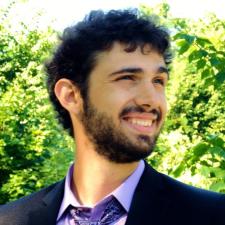
Kevin M. answered • 04/12/20
Experienced College Professor with PhD in Philosophy
Hi Robert,
I'd like to give you a bit more depth regarding the intellectual developments of the Italian Renaissance. Very often, you will hear people talk about Renaissance Humanism as a program of study that emerged in Italy, which is predominantly characterized by an interest in Greek and Roman authors. However, this does not do much to distinguish the Renaissance from the preceding centuries. In fact, Europe never really lost interest in the Greeks and Romans. The Scholastic philosophers and theologians of the previous centuries were avid readers of Aristotle (less so of Plato). Aquinas' Summa Theologiae is often taken as a natural, Christian, extension of Aristotle's work. And through Averroes (ibn Rushd), the Medieval Schools also had some acquaintance with the writers of late antiquity, such as Plotinus and Proclus. Many thinkers, like Duns Scotus and Aquinas, were intimately familiar with Augustine and Boethius, both of whom belong to late Antiquity and the Roman period. And every educated person knew something of Tully (Cicero), and every physician something of Dioscorides. Accordingly, there was more intellectual engagement with Antiquity in Medieval Europe than most people assume.
So what sets the Renaissance apart? For one, philosophy came out from under the dogmatic shadow of Augustine (a Christian thinker of Late Antiquity). Augustine had conceived of the human being as wretched and incapable of his own happiness. In his City of God, he makes severe arguments against what he understands as "philosophical happiness," which stands in contrast to the "Christian happiness" - the latter being unobtainable in this life. This attitude prevailed, at least implicitly, until the Renaissance. However, and by contrast, the Renaissance Humanists attempted to bring philosophy and Christianity back into accord on the happiness question. Philosophical contemplation was viewed as the product of a divine capacity in the human being, which allowed human beings to seek happiness in this life. But this is perhaps a subtle point.
More importantly, Renaissance thinkers (e.g. Brunolleschi, Da Vinci, and eventually Galileo) made Greek science science again. Where most of the Schools were willing to take Aristotle's rational arguments to settle important questions about physics, the Renaissance thinkers, much more in the spirit of the Greeks, put the scientific principles to the test. Aristotle himself called for this in his De Caelo, stating that reason should render a verdict of its own accord only where experience has not yet produced evidence. The Renaissance, partly aided by new inventions for making observations, saw a great increase in what could be brought to science as experiential evidence, and so the rationalism of the Ancient World, which sustained the Medieval period, underwent a dramatic shit in perspective regarding the facts. For instance, in the De Caelo, Aristotle reasons that the planets are made of the same material as the stars. But more direct observation of the planets led people like Galileo to reason otherwise.
Above is just a synopsis of some of the effects. But if you'd like to go into the specifics, get in touch!




